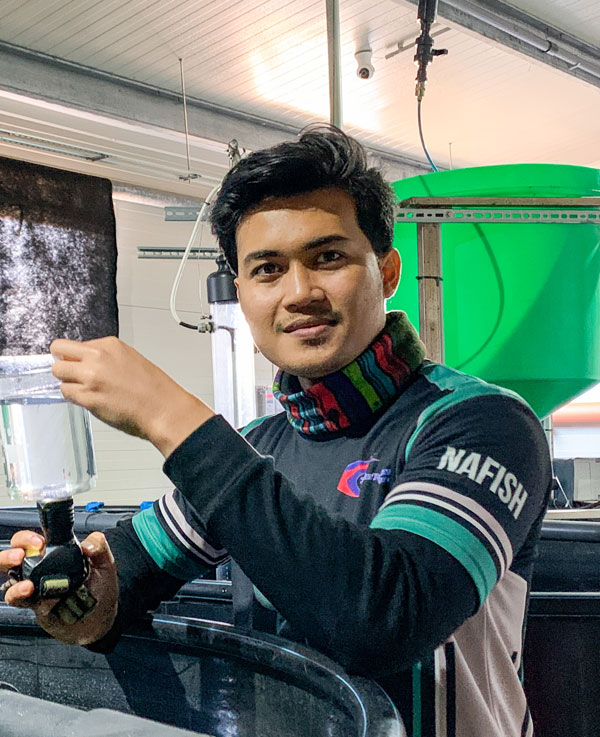Hazim Sajiri
Email: hazim.sajiri@vmri.hu
Affiliation: Veterinary Medical Research Institute (VMRI) / Állatorvostudományi Kutatóintézet (ATKI)
Enjoying the beauty of the sea with millions of treasures of life in it through scuba diving activities has inspired me to pursue a BSc in Marine Biology and successfully completed it in 2017 from the Universiti Malaysia Terengganu. Through my Bachelor’s journey, I discovered a tendency to be interested in aquaculture diseases when I completed my internship training at one of the government agencies in Malaysia. It was a turning point for me to jump into the aquaculture field, where I had furthered a MSc in Zoology and successfully completed in 2021.
Thanks to the swift transition throughout my Bachelor's up to my Master's degrees, it is glaring that science & research are endeavours that I would like to engage in depth. My passion for research started during my Bachelor's study when I was involved in the parasitology team during my final year Bachelor’s project. As I progressed, I gained more exposure during my Master’s study, as I was attached to the National Fish Health Research Division (NaFisH), Fisheries Research Institute, Malaysia. During this period, I was directly involved in dealing with aquaculture animal (fish and crustacean) diseases and eventually had the opportunity to be involved in consulting aquaculturists when mortality cases arise. At this point, I realised that diseases in aquaculture are not something that can be taken lightly as it involves negative impacts from all aspects.
So far, I have familiarised myself with the fish and crustacean pathogens examination routine that includes molecular genetics, computing the presence and prevalence of parasites, equipped myself with several staining protocols, as well as prepared histology samples. As the parasites field was my major focus, I have encountered and dealt with several parasites from both marine and freshwater aquaculture. All of this knowledge has been strongly tampered with during my four years of working experience, hence developing a strong foundation in my parasitology background.
Project description
ESR 11: Parasitic infestation and feasible control against them in recirculating aquaculture system (RAS)
Aquaculture is the fastest-growing food-producing industry and has grown dramatically over the past five decades, reaching 80 million tonnes of food fish harvested (FAO report 2018). In recent years, the current global climate change has made the horizontal expansion of this industry impossible. To further increase aquaculture production, the requirement for a robust technology is obvious. Considering environmental sustainability and vulnerability to the effects of climate change on fish production, one of the potential adaptation strategies is “Recirculating Aquaculture Systems (RAS)”. RAS allows for increasing fish production by many folds using limited resources. However, water quality in recirculating systems is more unstable than in large ponds or flow-through systems, which leads to fluctuations, such as temporary increases in ammonia or nitrite, which can result in suppressed immune systems and greater susceptibility to pathogens (i.e., disease-causing organisms, such as bacteria, parasites, fungi, and viruses) and disease outbreaks.
Parasites with a direct life cycle pose a major threat in RAS because of their fast accumulation by the close fish-to-fish contact resulting in the high individual density required for production. As a parasite infects a fish within a RAS, it becomes proliferates, and the disease spreads rapidly. Hence, this work aims to provide knowledge on the abundance and diversity of parasites infecting the fish species and their health status in RAS. To the best of my knowledge, this study will be the first report showing the composition of parasites in the RAS, focusing on pikeperch and European catfish as hosts. Besides, this study will enhance the ability to recognise a wide range of parasite control methods and determine optimal management processes to reduce the risk of loss in RAS using environmentally friendly treatments

